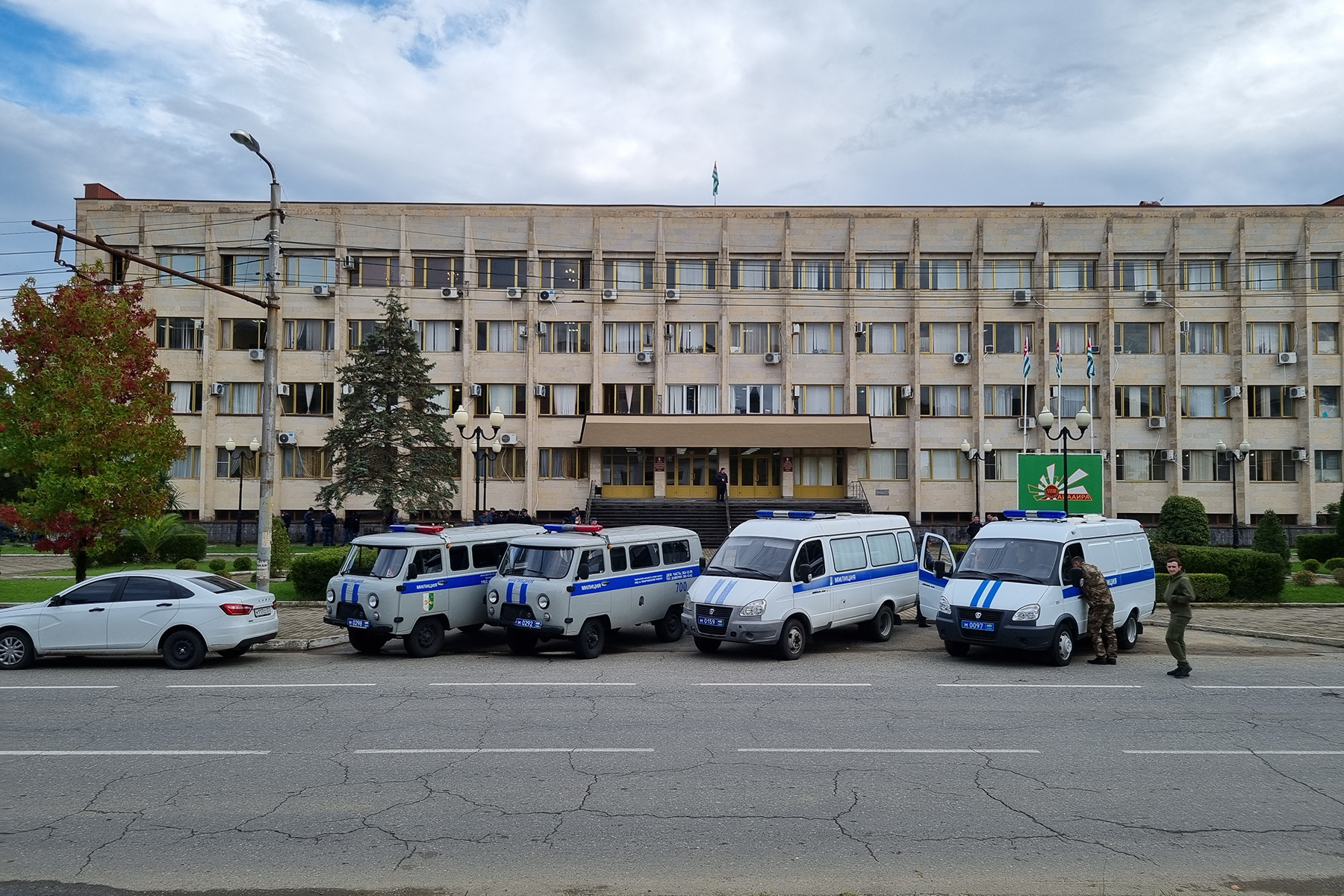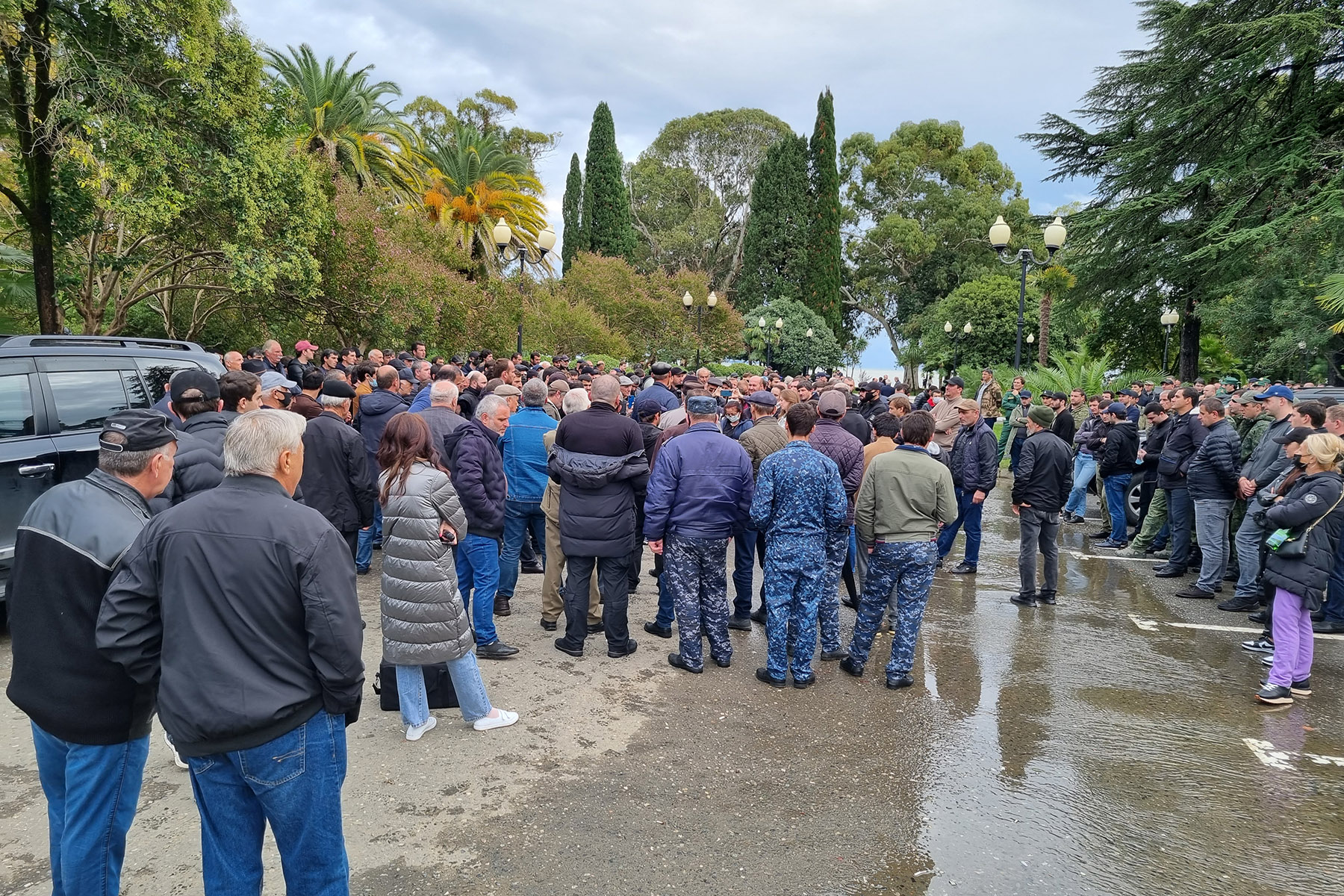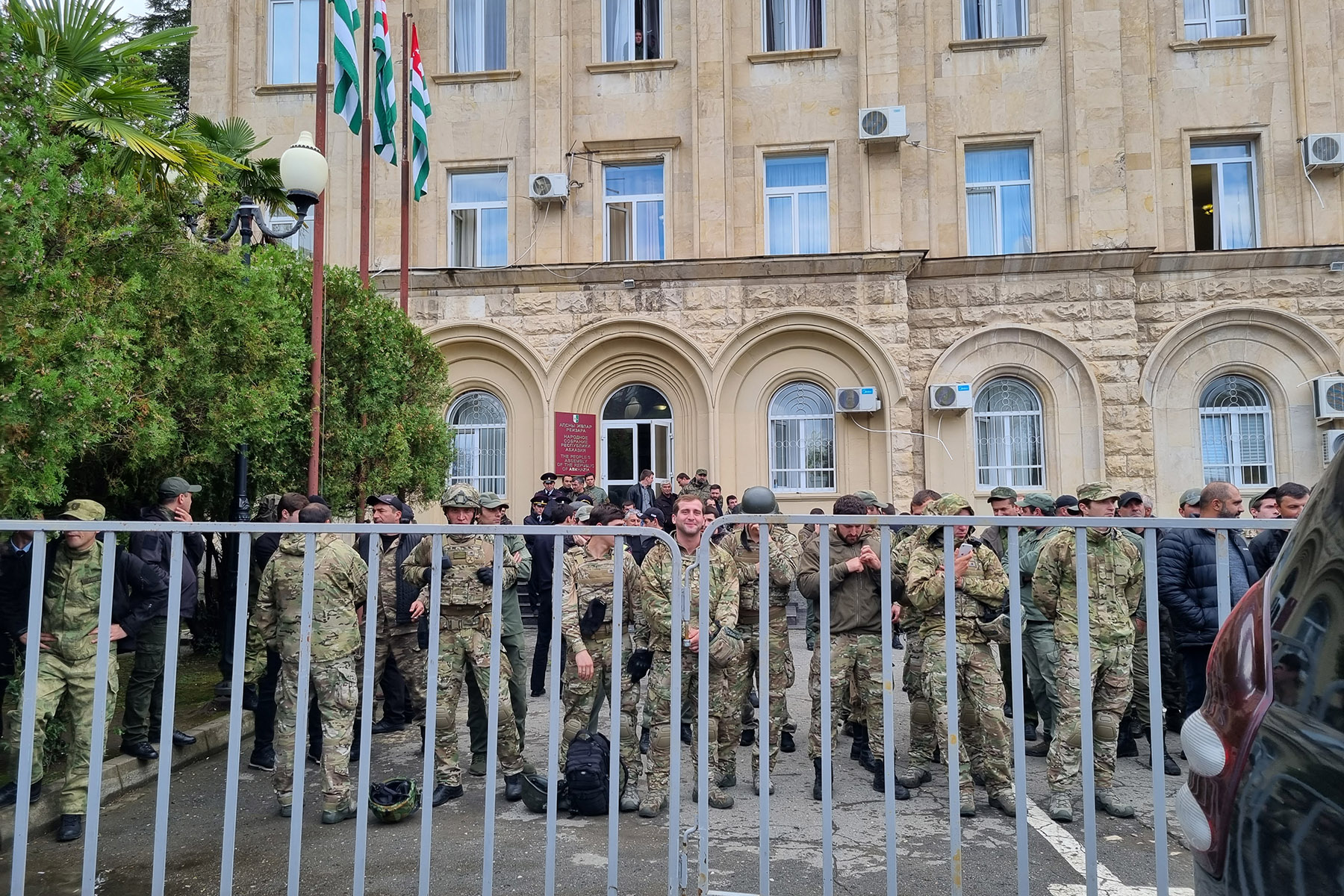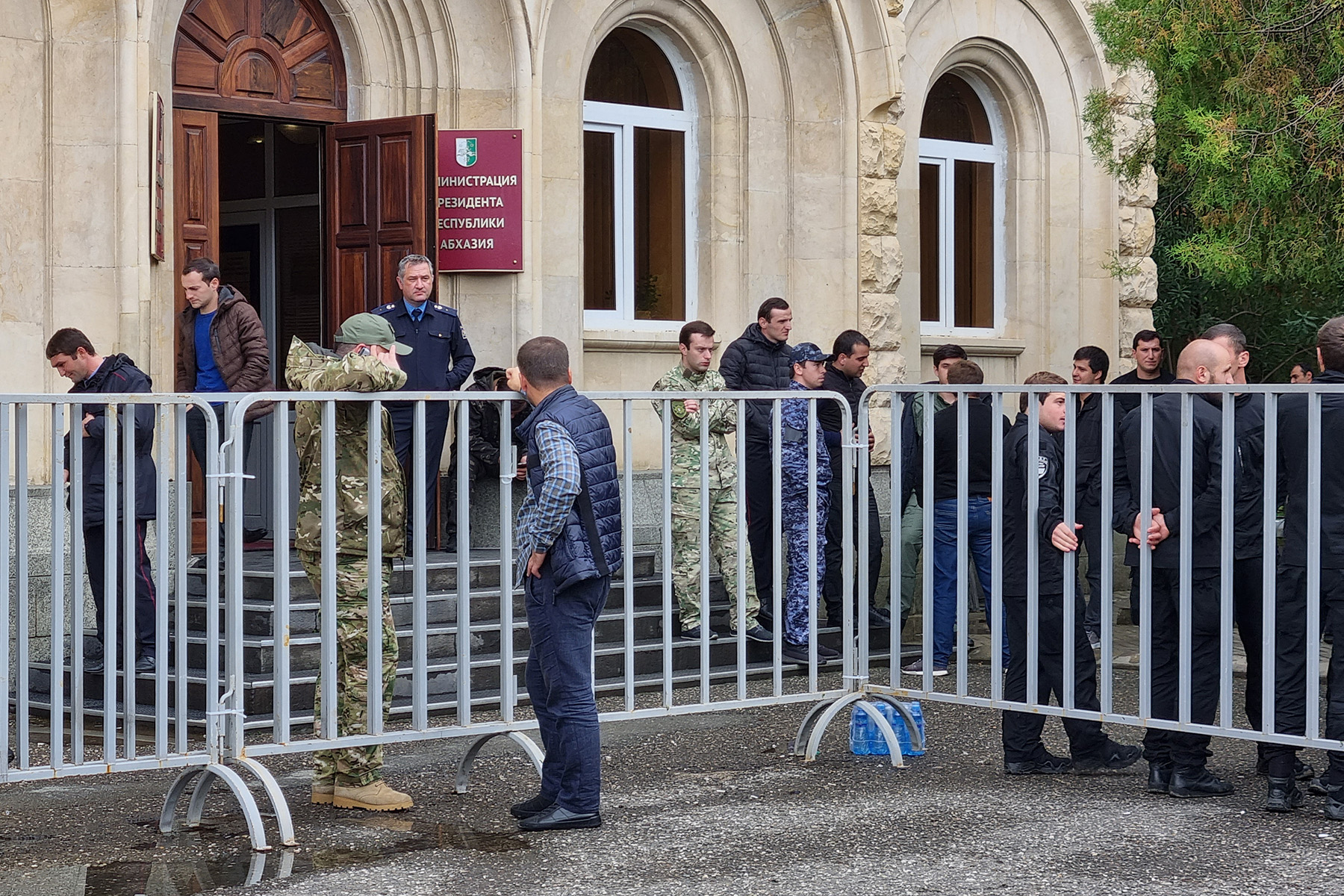
Around 200 people have held a demonstration outside the parliament of Abkhazia demanding the dismissal of Interior Minister Dmitry Dbar over a fight between police and a group of veterans.
On Monday, a group of veterans of the 1992–1993 War in Abkhazia, mostly from the village of Adzyubzha, gathered to demand that Dbar and several of his subordinates face consequences over the confrontation several days earlier.
On 30 September, which is celebrated as victory day in Abkhazia, police officers confronted a group of veterans after MP Garry Kokaya fired a pistol into the air in celebration.
After police arrived on the scene, Kokaya refused to hand over the weapon leading to a fight in which he and seven veterans were injured. According to the head of Aruaa, a group of veterans associated with former President Raul Khadzhimba, those injured were left lying on Sergei Bagapsh Square.




On 2 October, an emergency session of parliament was held to discuss the confrontation and on following day, President Aslan Bzhania returned earlier than scheduled from a trip to Moscow.
At an emergency meeting in the Presidential Administration, Bzhania accepted a proposal from the Interior Minister to be removed from office pending the conclusion of an investigation.
Despite his temporary removal, protesters who gathered on Monday were not satisfied. ‘Let the prosecutor come here and start a criminal case’, one shouted from the crowd.
Addressing the crowd, Givi Dopua, a well-respected veteran from the village of Adzyubzha, said that all those involved in the incident should leave their posts.
Several MPs met with the protesters while protest leaders and President Bzhania also met. Following this, protesters took the decision to wait for the conclusion of the investigation.
A sitting of parliament the same day also decided to wait for the investigation to conclude.
The primary geographic terms used in this article are those of the author’s. For ease of reading, we choose not to use qualifiers such as ‘de facto’, ‘unrecognised’, or ‘partially recognised’ when discussing institutions or political positions within Abkhazia, Nagorno-Karabakh, and South Ossetia. This does not imply a position on their status.








